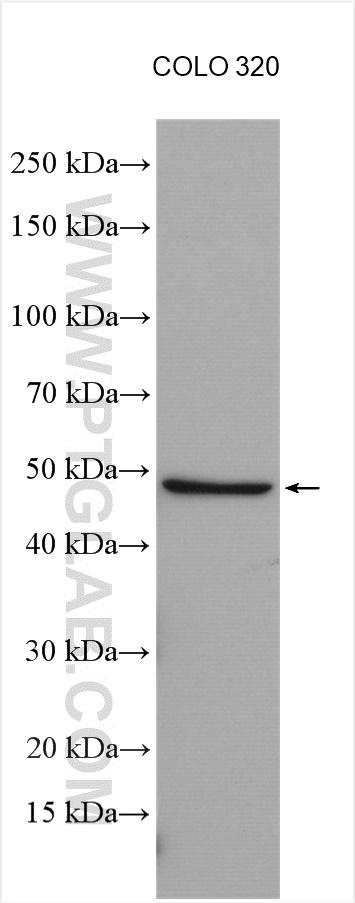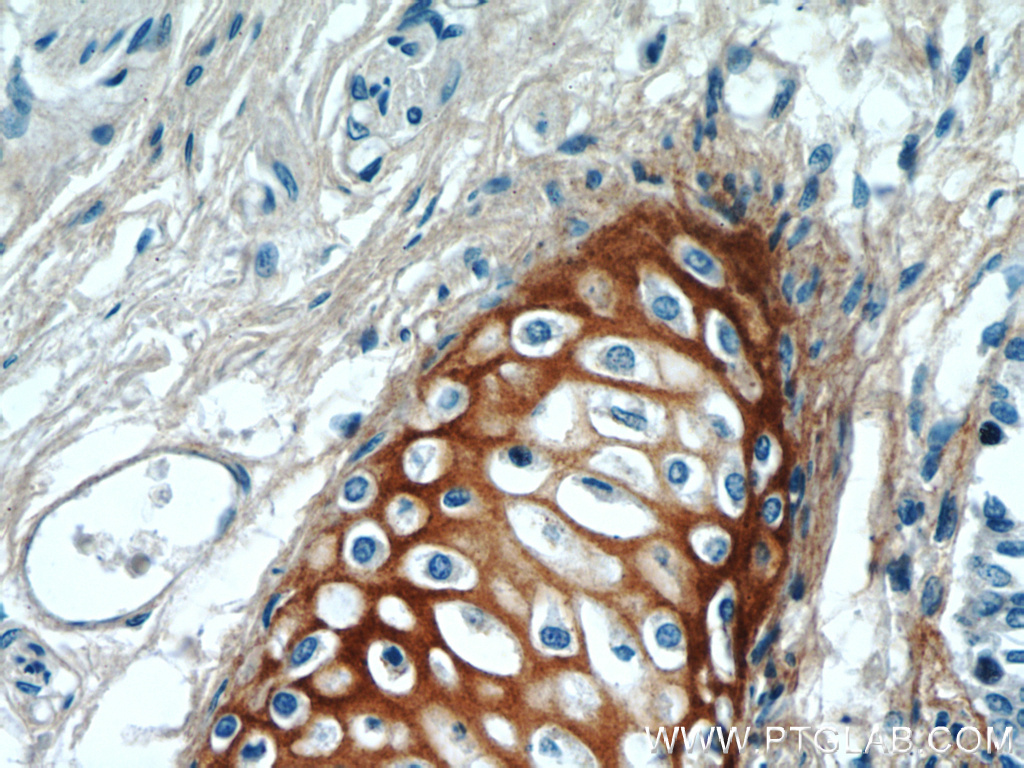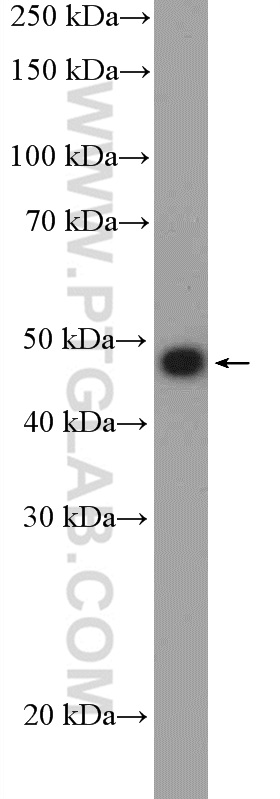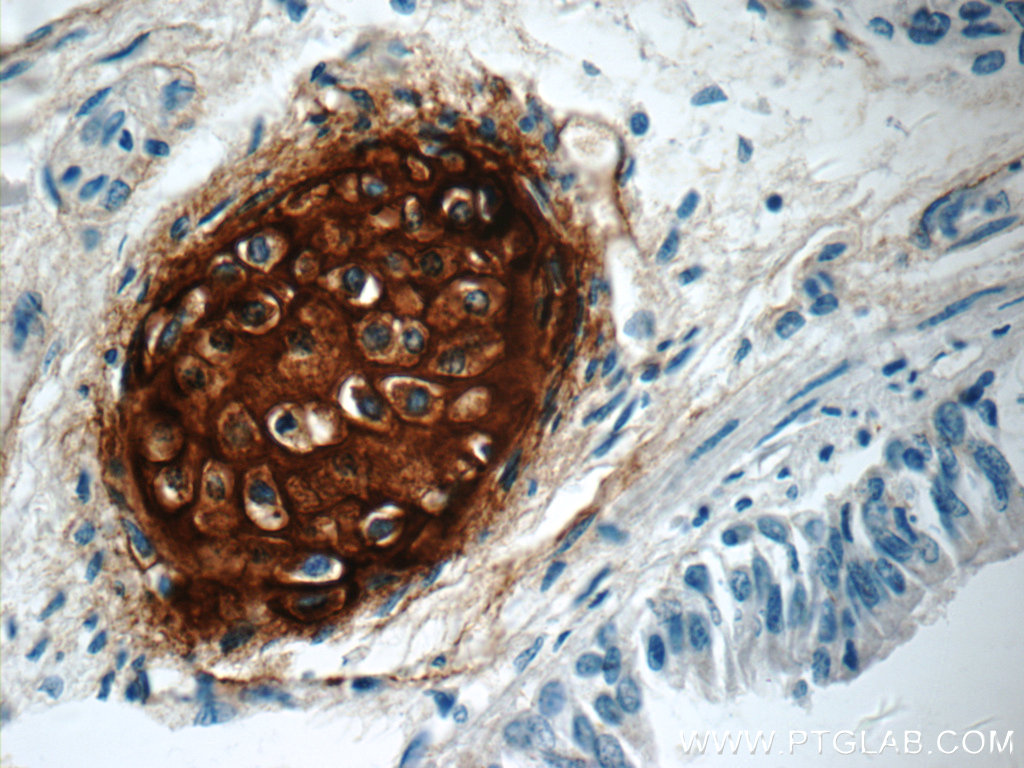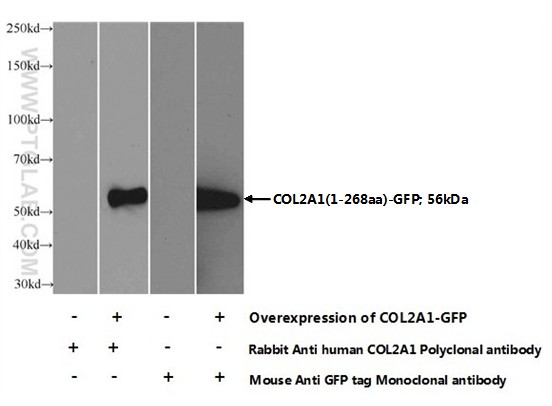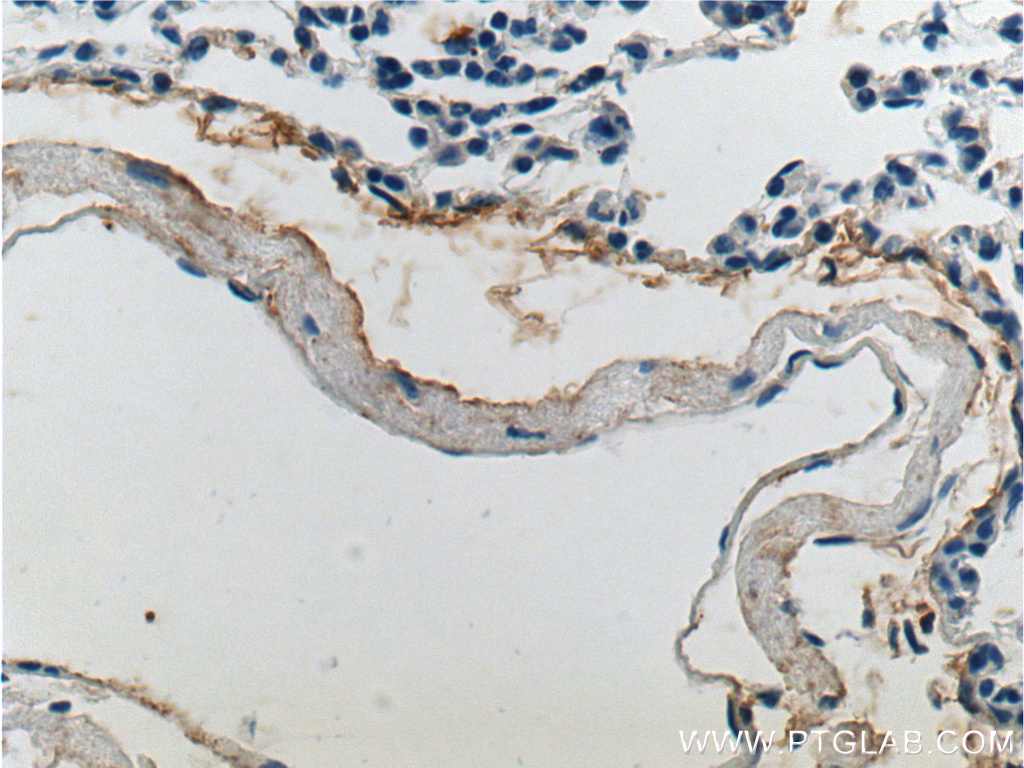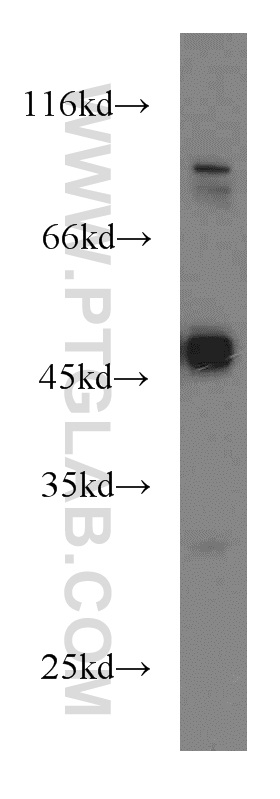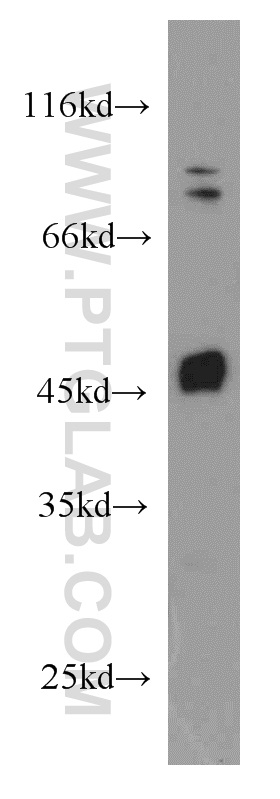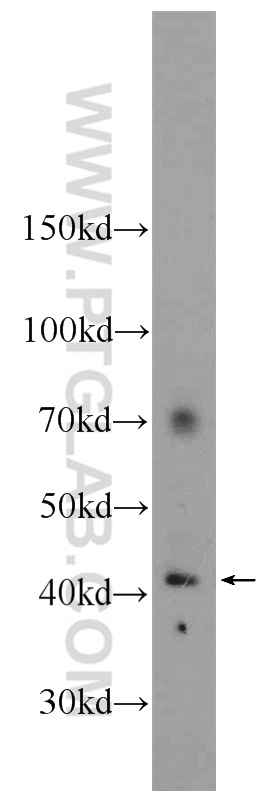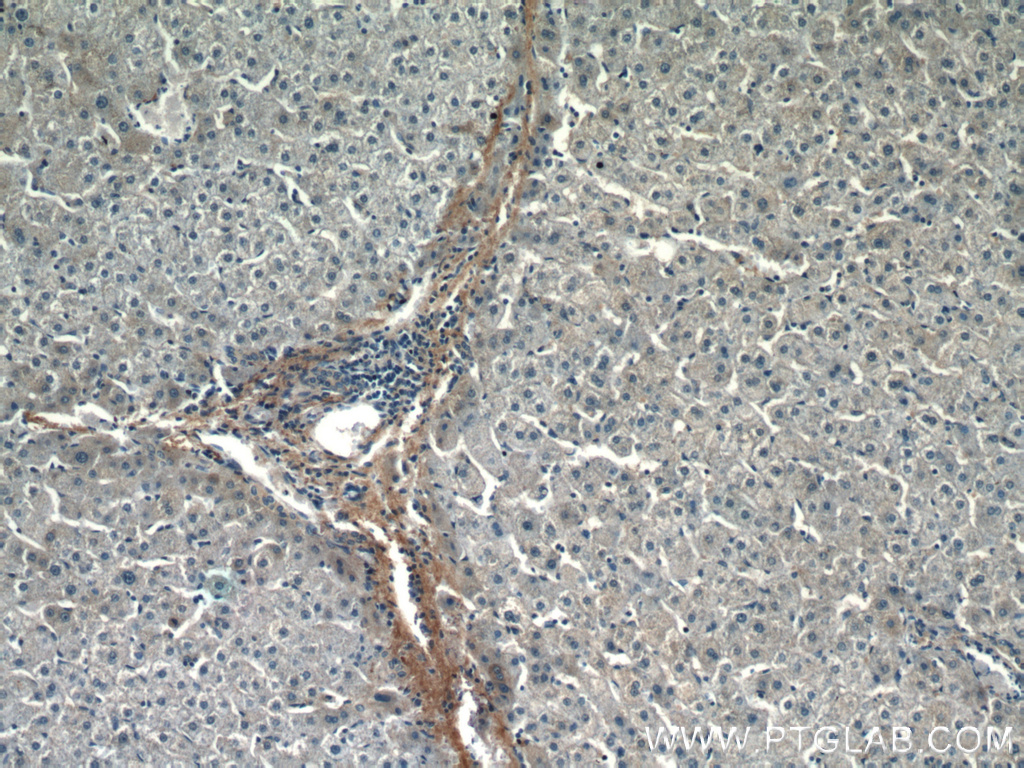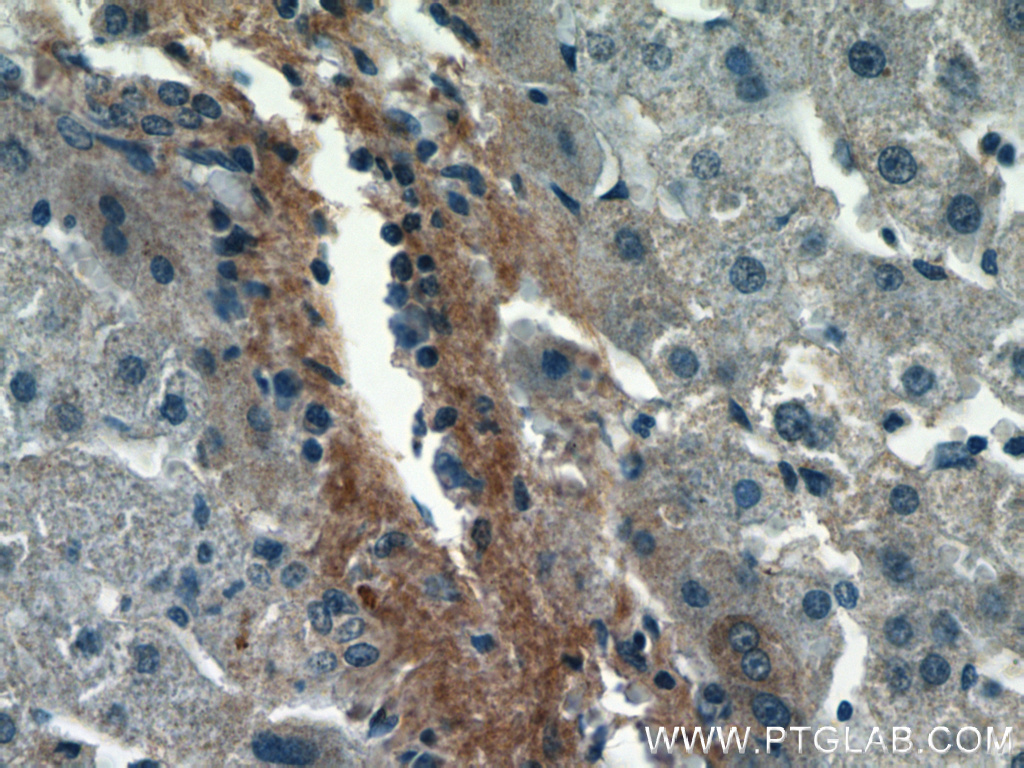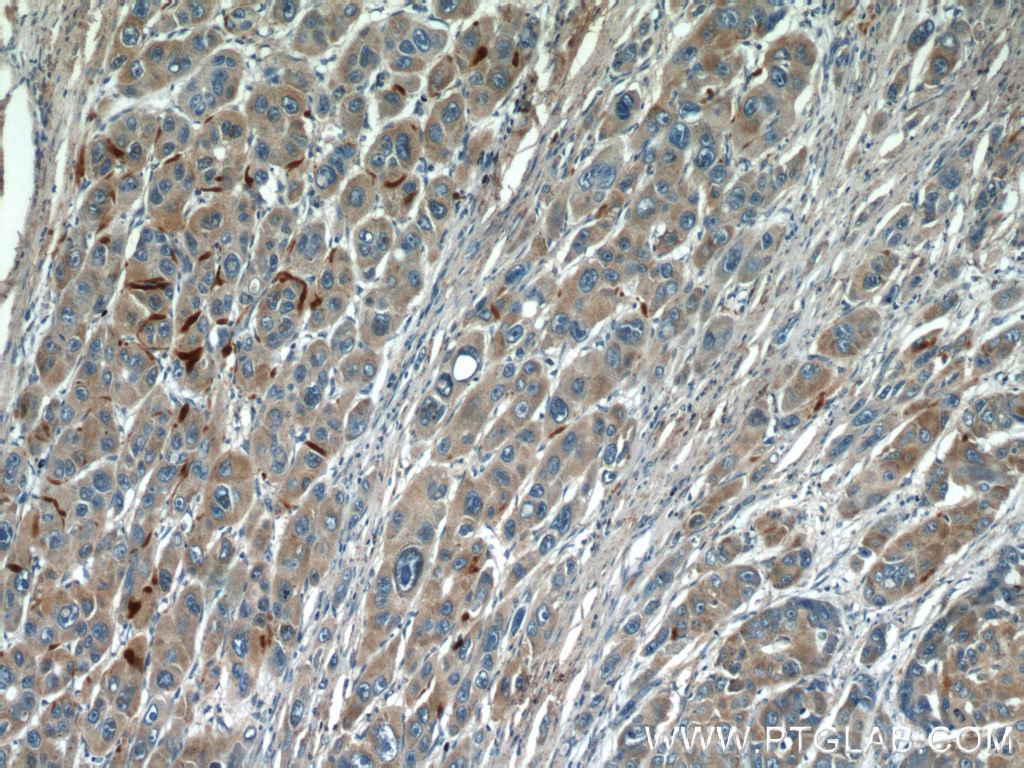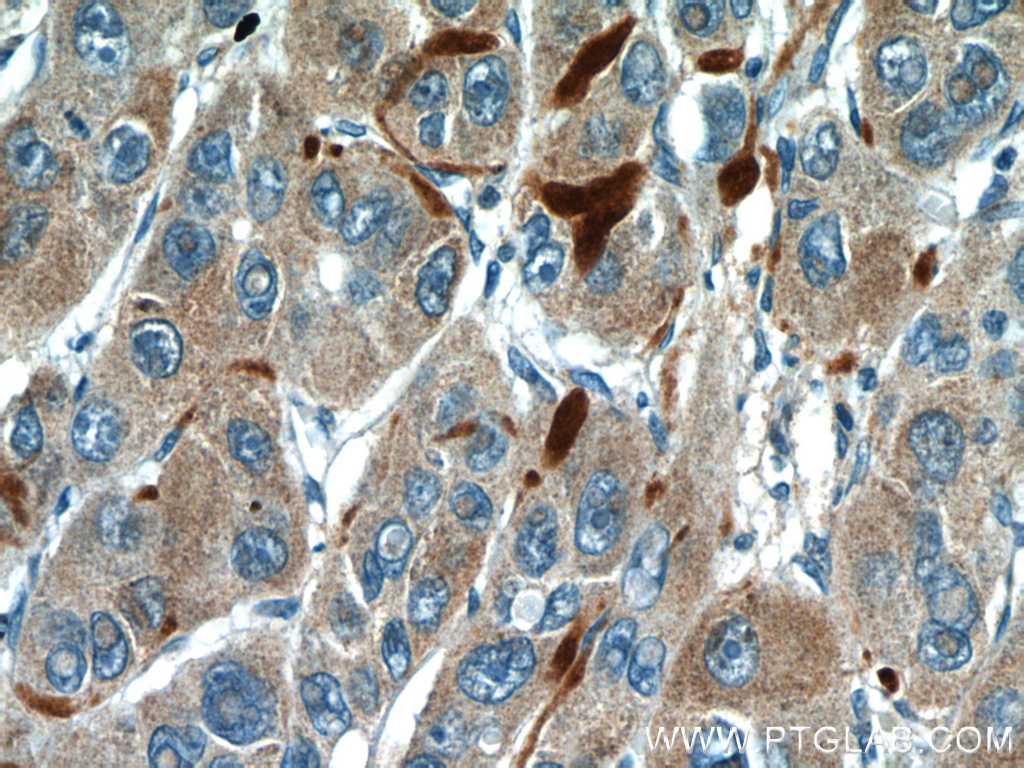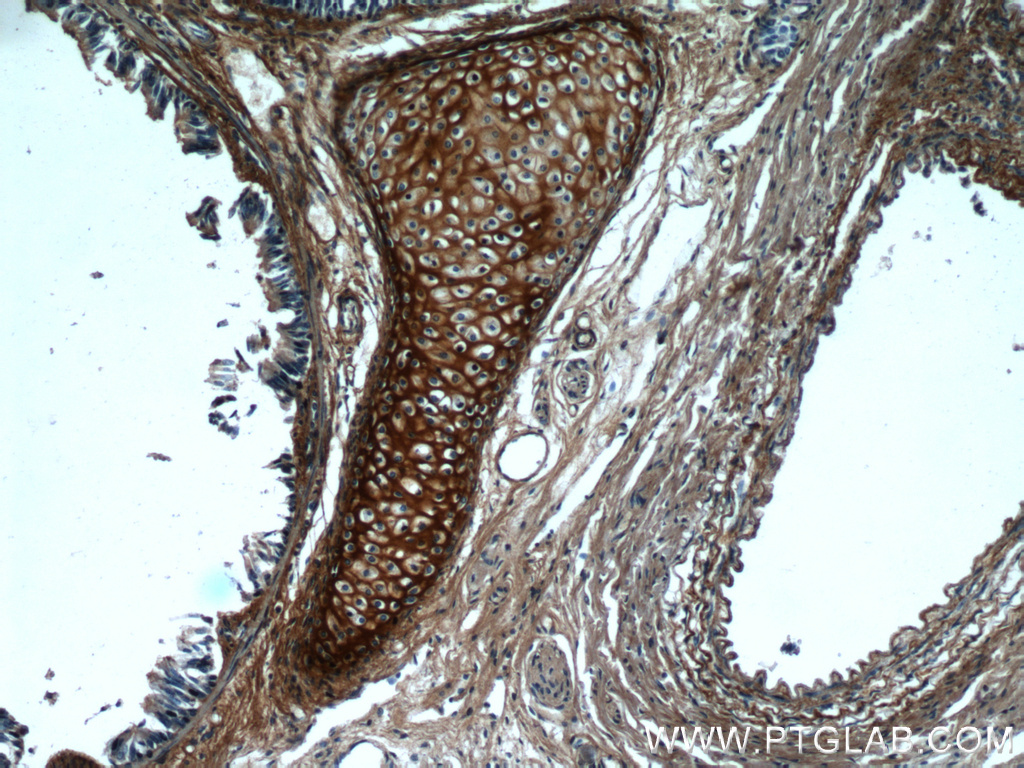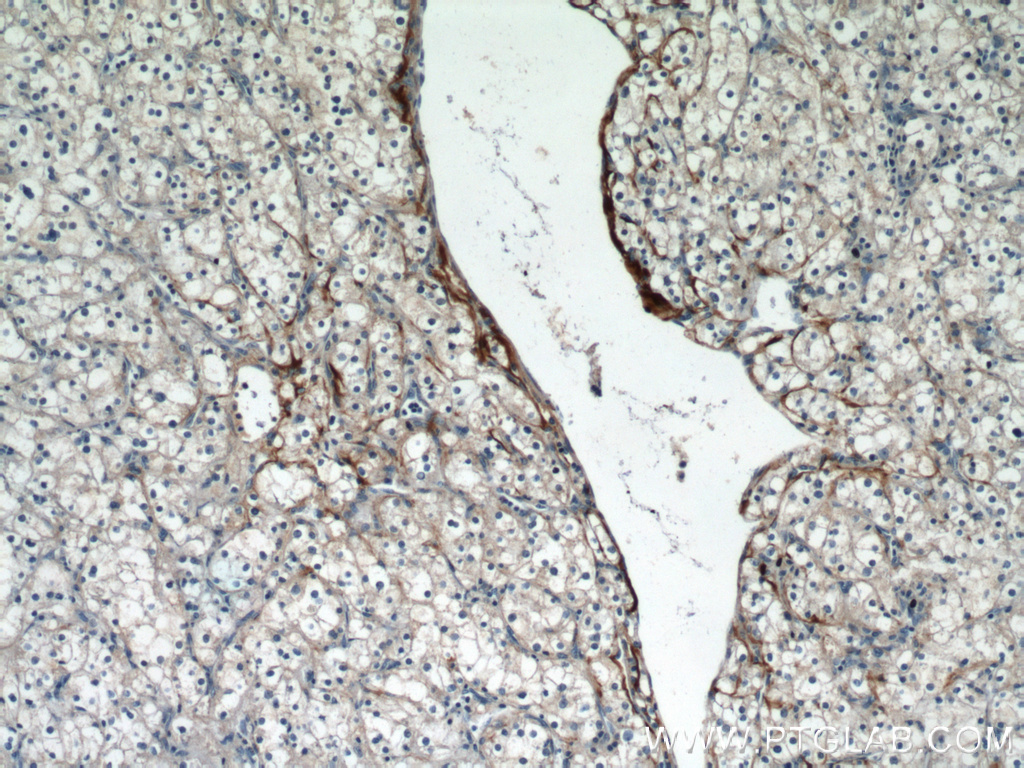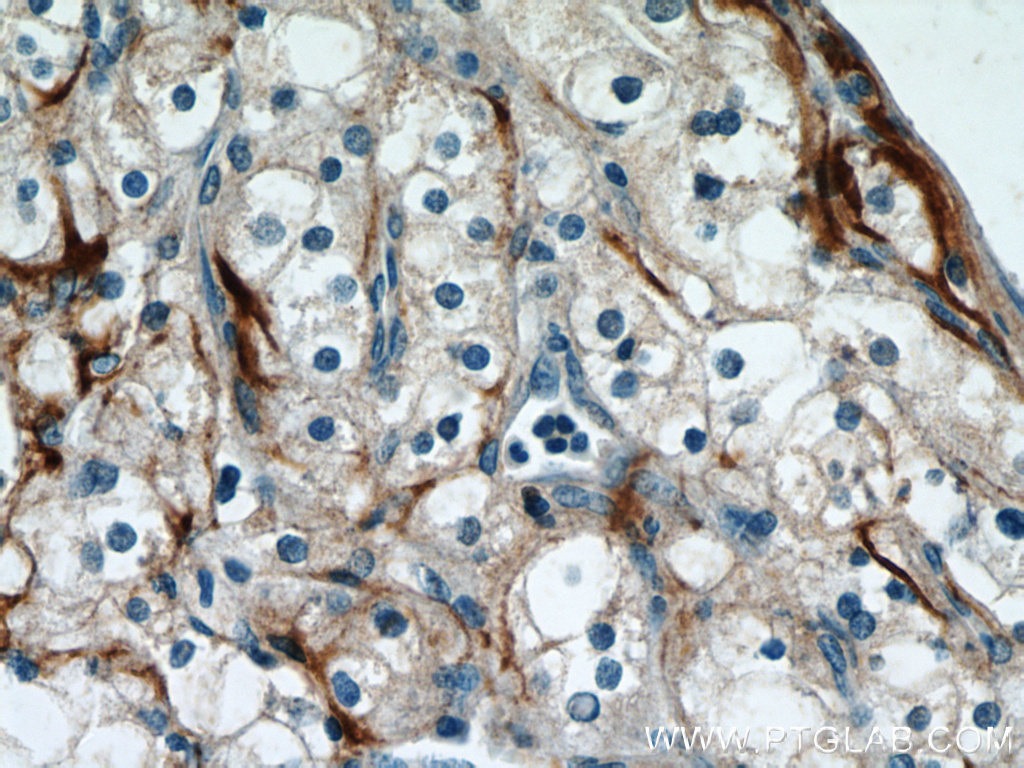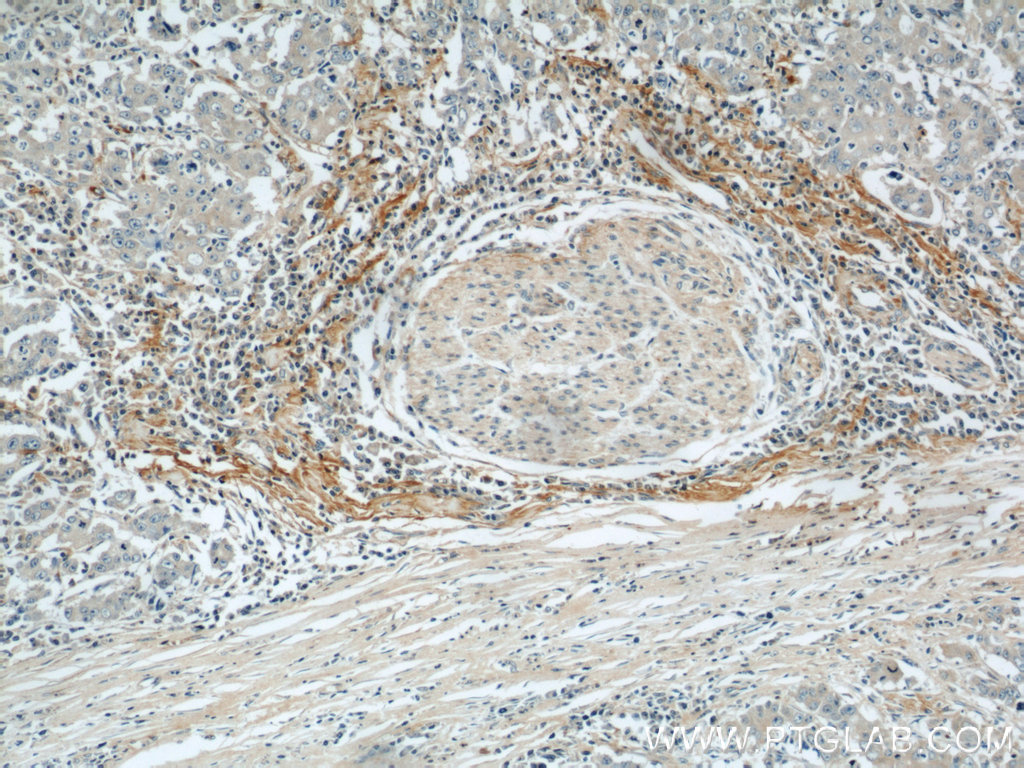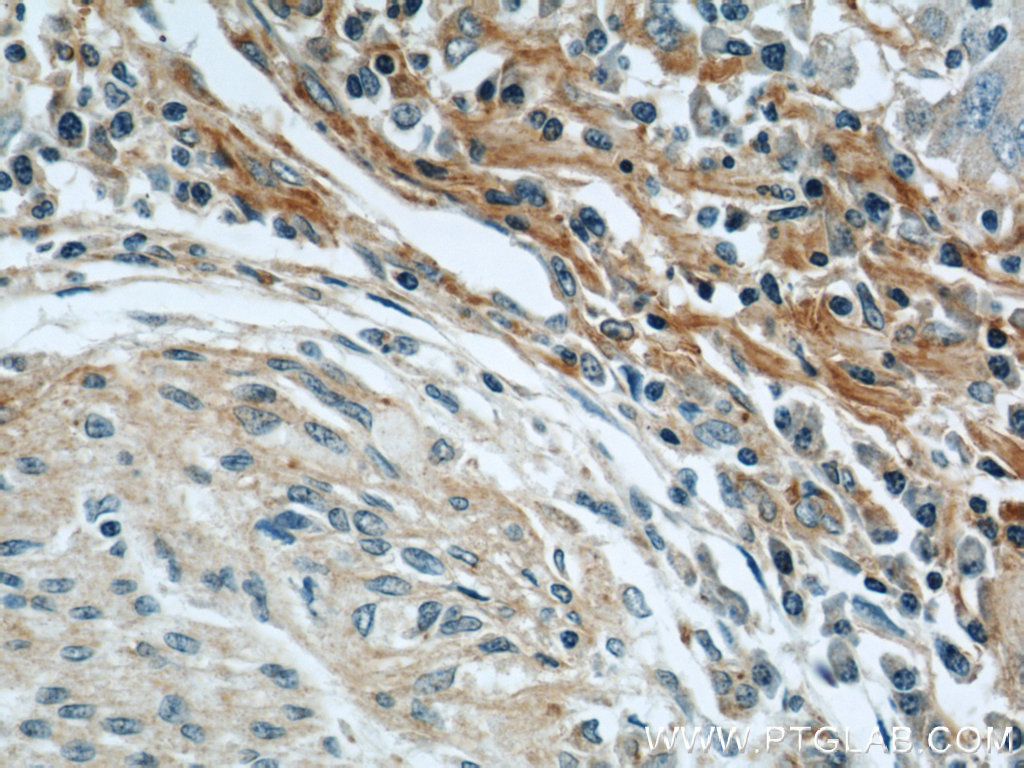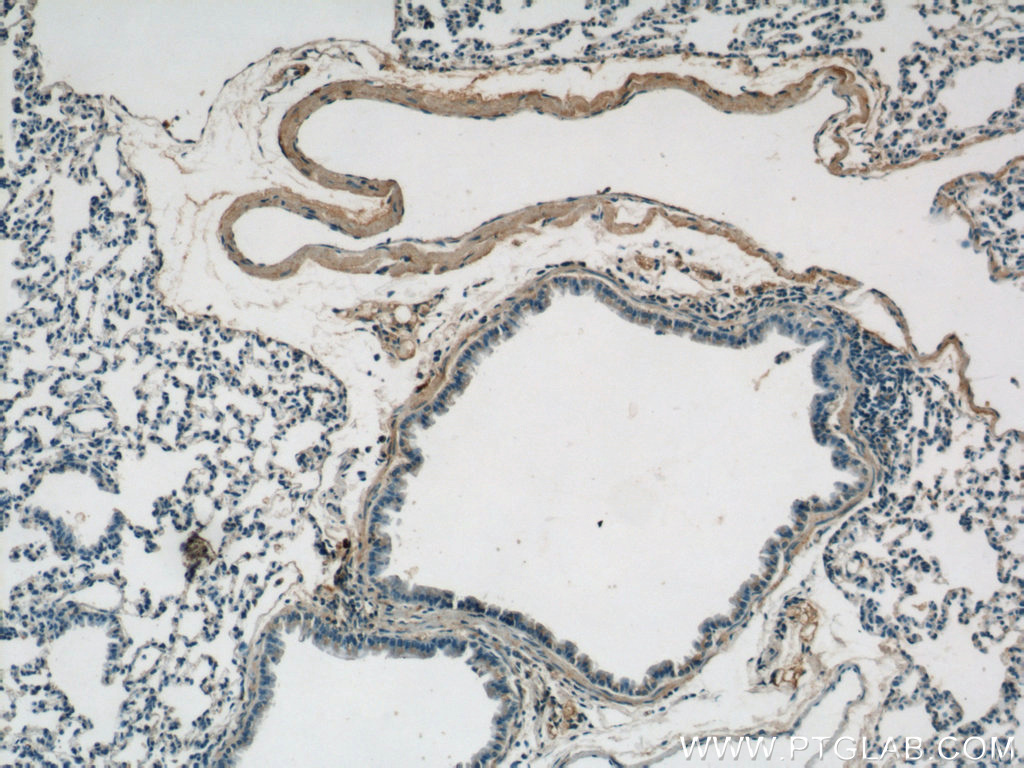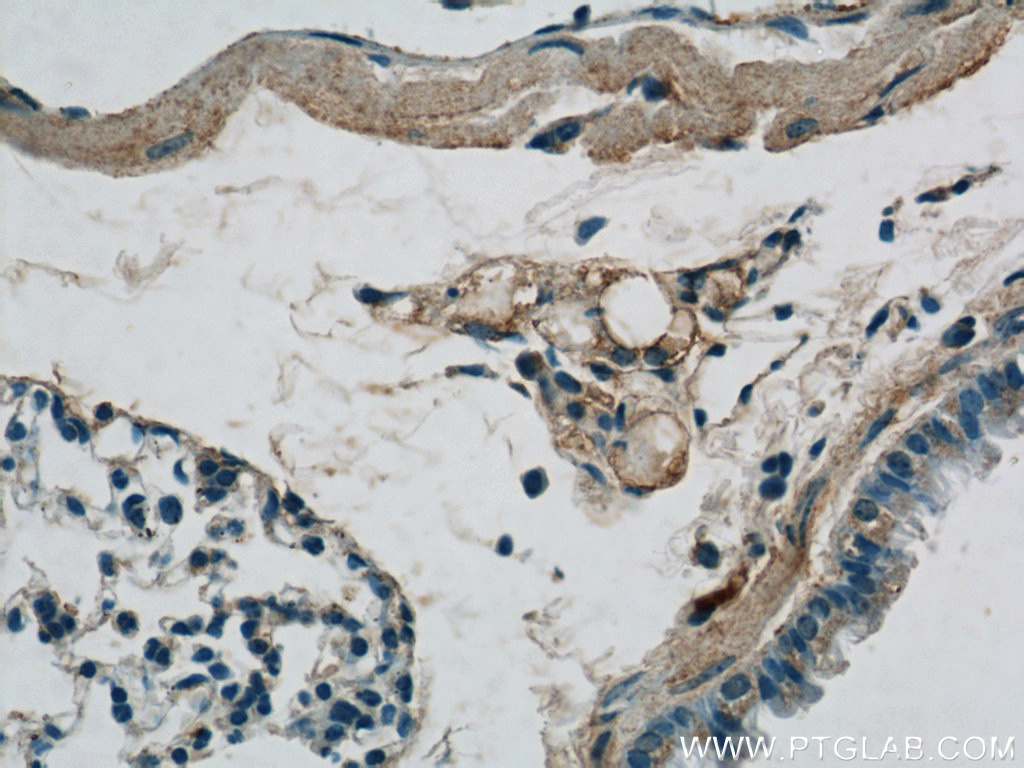- Featured Product
- KD/KO Validated
Biglycan Polyclonal antibody
Biglycan Polyclonal Antibody for IF/ICC, IHC, WB, ELISA
Host / Isotype
Rabbit / IgG
Reactivity
human, mouse, rat, pig
Applications
IF/ICC, IHC, WB, ELISA and More (1)
Conjugate
Unconjugated
验证数据展示
经过测试的应用
| Positive WB detected in | COLO 320 cells, mouse skeletal muscle tissue, HeLa cells, HepG2 cells, pig cartilage tissue |
| Positive IHC detected in | human lung tissue, human liver cancer tissue, human renal cell carcinoma tissue, human stomach cancer tissue, mouse lung tissue Note: suggested antigen retrieval with TE buffer pH 9.0; (*) Alternatively, antigen retrieval may be performed with citrate buffer pH 6.0 |
| Positive IF detected in | HepG2 cells |
推荐稀释比
| Application | Dilution |
|---|---|
| Western Blot (WB) | WB : 1:500-1:2000 |
| Immunohistochemistry (IHC) | IHC : 1:20-1:200 |
| Immunofluorescence (IF) | IF : 1:20-1:200 |
| It is recommended that this reagent should be titrated in each testing system to obtain optimal results. | |
| Sample-dependent, Check data in validation data gallery. | |
产品信息
The immunogen of 16409-1-AP is Biglycan Fusion Protein expressed in E. coli.
| Tested Applications | IF/ICC, IHC, WB, ELISA |
| Cited Applications | WB, IF, IHC, Cell treatment |
| Tested Reactivity | human, mouse, rat, pig |
| Cited Reactivity | human, mouse, rat |
| Immunogen | Biglycan fusion protein Ag0683 种属同源性预测 |
| Host / Isotype | Rabbit / IgG |
| Class | Polyclonal |
| Type | Antibody |
| Full Name | biglycan |
| Synonyms | A6NLG9, BGN, biglycan, Bone/cartilage proteoglycan I, DSPG1, PG S1, PGI, SLRR1A |
| Calculated Molecular Weight | 42 kDa |
| Observed Molecular Weight | 40-48 kDa |
| GenBank Accession Number | BC004244 |
| Gene Symbol | BGN |
| Gene ID (NCBI) | 633 |
| RRID | AB_10804656 |
| Conjugate | Unconjugated |
| Form | Liquid |
| Purification Method | Antigen affinity purification |
| UNIPROT ID | P21810 |
| Storage Buffer | PBS with 0.02% sodium azide and 50% glycerol pH 7.3. |
| Storage Conditions | Store at -20°C. Stable for one year after shipment. Aliquoting is unnecessary for -20oC storage. |
背景介绍
实验方案
| Product Specific Protocols | |
|---|---|
| WB protocol for Biglycan antibody 16409-1-AP | Download protocol |
| IHC protocol for Biglycan antibody 16409-1-AP | Download protocol |
| IF protocol for Biglycan antibody 16409-1-AP | Download protocol |
| Standard Protocols | |
|---|---|
| Click here to view our Standard Protocols |
发表文章
| Species | Application | Title |
|---|---|---|
Oncoimmunology Landscape of cancer-associated fibroblasts identifies the secreted biglycan as a protumor and immunosuppressive factor in triple-negative breast cancer. | ||
Cancers (Basel) Biglycan Promotes Cancer Stem Cell Properties, NFκB Signaling and Metastatic Potential in Breast Cancer Cells.
| ||
Oncoimmunology Biglycan-mediated upregulation of MHC class I expression in HER-2/neu-transformed cells. | ||
Cell Prolif Aspirin inhibits inflammation and scar formation in the injury tendon healing through regulating JNK/STAT-3 signalling pathway. | ||
Cancer Med Establishment of a risk model by integrating hypoxia genes in predicting prognosis of esophageal squamous cell carcinoma | ||
J Proteome Res Multi-Proteomic Analysis Reveals the Effect of Protein Lactylation on Matrix and Cholesterol Metabolism in Tendinopathy |
